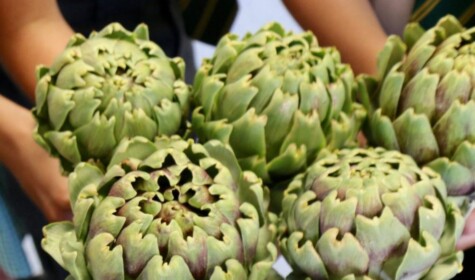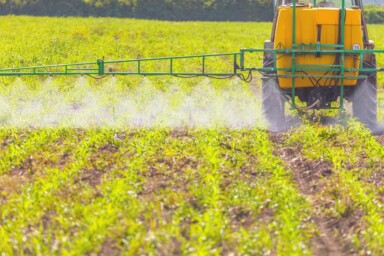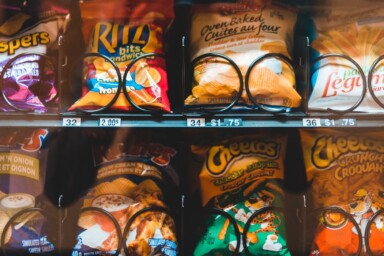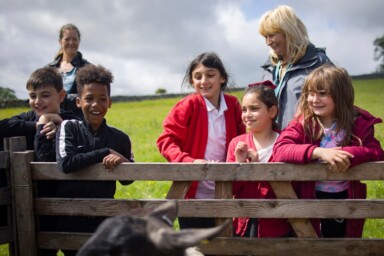As we come to terms with a new way of living during this coronavirus crisis, we are learning to rethink how we live and work, day to day. We are adapting to a situation that none of us has experienced before and, for all the challenges that it brings, there is a growing sense that this pandemic is telling us something important about the way our world has become and how it might need to change when we come out the other side.
What the virus is showing us with frightening speed is just how incredibly interconnected the world is. We can see how the virus has spread like ink across a piece of blotting paper and its far-reaching impact is having devastating consequences for human populations. Ironically, Nature, for so long under the cosh from the relentless demands we put on it, is getting some respite, and in some cases is starting to bounce back. There is evidence of this in data from the European Environment Agency, which highlights a reduction in air pollution in Italian cities since the start of the crisis, and anecdotally in eyewitness reports from Venice that note the return of fish to the city’s – now calm – waterways.
From an education perspective, there are some important observations to make, particularly in relation to the view of the world that our education system currently presents to students. We have, for too long, lived in a way that fails to recognise the highly interconnected nature of our world and all life within it. And our tendency to view things in isolation from one another is enshrined and perpetuated by the way we choose to structure our teaching and learning.
For the most part, what we learn in schools is wholly disconnected. We learn through the lens of a specific subject and we rarely explore the links between one subject and another. Indeed, we often plan out learning in such disparate ways, that there is no sense of cohesion or connection between different areas of learning whatsoever. This approach creates a mindset of separateness and the outcome of that, is that we grow up with a very limited understanding of the way life and the world works in the most extraordinarily complex and interconnected ways.
Conversely, as we are seeing right now, when we work well together in a spirit of community and interdependence, relationships become stronger and a real sense of belonging is created.
All life exists in interdependent systems. When we join up learning around purposeful projects or enquiries with a strong focus on sustainability, our young people are much more likely to understand that the way they choose to live their lives impacts the wider world, for better or for worse.
Take, for example, food. It’s always very easy to go to the supermarket and buy whatever we like with little regard for the provenance of that food, where it originates from and what kind of system produced it. We are now having to think more carefully about what food we can get – whether we can link to an alternative food system, be it a box scheme or even a local food producer we may never have considered before. This opens up fascinating conversations we can have with our young people about where our food comes from and what kind of food choices we make. Is it better to source locally-produced, seasonal food in support of British farmers, or do we want to revert back to supermarket food and get what we want when we want it?
The current situation is also prompting us to make the best use of the food that is available to us, making less go further when supermarket stock is uncertain. In contrast, data collected before the coronavirus crisis shows that households in the UK alone, throw away an incredible 6.6 million tonnes of otherwise edible food every year. It will be interesting to see what this year’s figures show – will we have learned to value what we eat more?
There are also lots of opportunities this springtime to reconnect with the soil, to plant seeds and grow food, however small our home space may be. Whether it is pots of herbs on windowsills, food plants on patios or an area in the garden that can be given over to food production – this is the perfect time to engage our young people in projects of learning that encourage them to actually produce the food they eat. Who knows, some of them may even be inspired to pursue a career growing or cooking food as a result?
Similarly, we are all exploring creative ways in which we can make tasty meals with limited ingredients. This provides a great opportunity for young people to work with adults to learn cookery skills like weighing, chopping, peeling, slicing, grating, braising, browning and baking as they prepare daily dishes to share with family members or deliver to a neighbour. We are creating and sharing recipes each day via The Harmony Project website which may be of help in generating ideas for what to cook next.
With so many young people off school at the moment and so much online learning taking place, how much more rewarding and relevant it could be if our young people learnt how to grow food in whatever available space they have and to then use their produce to supplement the food dishes they make. This is how our future education system could work – with young people engaged in purposeful projects of learning that get them out of the classroom and learning skills that help them to be creative, resilient and resourceful in really practical ways.
As we question what the coronavirus is teaching us, there is a real opportunity for us to plan out a new story for education, one that puts the future well-being of our young people and the world they live in, at its heart. Maybe this time of self-isolation will give us a chance like never before to rethink what we are educating for and to create something much healthier, more wholesome and more connected to the reality of the challenges we face.
We believe that Harmony in Education provides just such an approach with its relevant, real life applied projects of learning, underpinned and informed by Nature’s principles of Harmony, and concluded through ‘Great Work’ celebrations of what has been learnt and achieved. This is how all learning could be. With the pause button firmly down at present, we have an opportunity to reimagine a better education system that connects subjects together and contextualises them through meaningful projects to the benefit of both students and the natural world upon which we so depend.
For more information about the work of The Harmony Project, visit the website – www.theharmonyproject.org.uk







